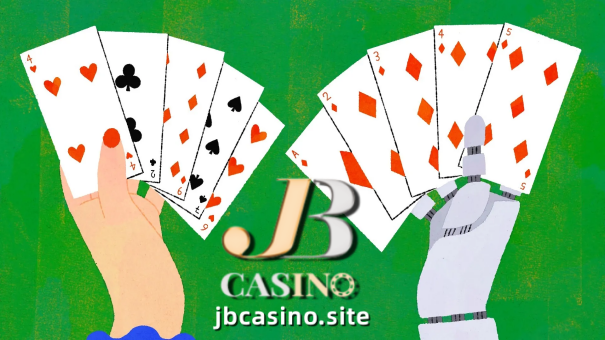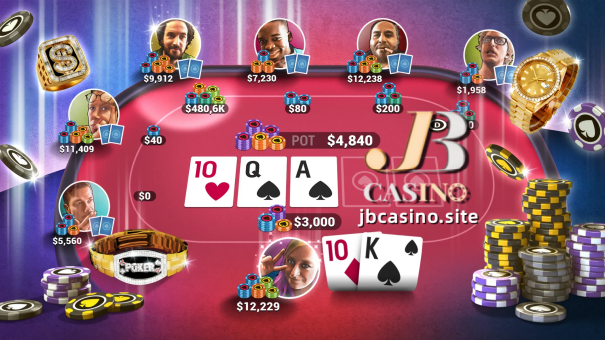If you’re an experienced player or just a beginner, you’ve probably experienced a bad loss – when a player who started out with a weaker hand ended up winning the game. It’s part of the game, but it can be frustrating. However, managing these losses is critical to your long-term success.
In this guide, JB Casino will share four key strategies to help you deal with bad situations and enhance your gaming experience. So, buckle up and get ready to take your poker skills to the next level!
Understanding Bad Beats in Poker
Bad beats are an integral part of the game of poker. In this case, the player who initially held a strong hand loses to another player who catches up and surpasses them at the end of the round. Even though the odds are heavily in favor of players with strong hands, this turn of events happens all the time. This unpredictability of poker makes it an exciting and challenging game.
The impact of a bad beat on a poker game can be huge. It can change the dynamics of a game, alter strategies, and even affect a player’s emotional state. The latter is often the most important, as the feeling of failure can be demoralizing despite having a strong hand. This emotional roller coaster makes poker more than just a card game, but a battle of resilience and mental strength.
In poker, bad beats are inevitable. They are a testament to the unpredictability of the game and the endless possibilities that come with each round. While they may feel unfair or even frustrating, it’s important to remember that they’re part of the game’s charm. Experiencing bad games can even improve your game because they force you to adapt and think quickly.
As a poker player, it’s crucial to understand and accept bad beats. Not only does it help you maintain a positive gaming attitude, it also improves your decision-making skills and strategic thinking. So, next time something bad happens to you, don’t let it bring you down. Instead, think of it as an opportunity to learn and grow as a poker player.
Emotional control skills
In poker, controlling your emotions after losing is crucial. Here are three effective tips to help you stay calm:
- Take a break: After experiencing a setback, it’s natural to feel frustrated or upset. Don’t let these emotions affect your game, but instead take a short break. Use this time to clear your mind, reevaluate your strategy, and regain your composure before returning to the negotiating table.
- Practice mindfulness: Mindfulness involves focusing on the present moment without judgment. By practicing mindfulness, you can manage your emotions more effectively, helping you make rational decisions rather than impulsive ones.
- Positive self-talk: After a setback, it’s easy to start doubting your skills. To combat this, engage in positive self-talk. Remind yourself that you are a good player and failure is part of the game. This can help boost your confidence and keep you focused on the game.
Bad rhythm can be difficult to deal with, but with these emotion management techniques, you can overcome them and stay ahead. Remember, poker is as much a game of skill as it is a mind game. So don’t let poor pacing get you down. Instead, use it as an opportunity to build mental resilience and improve your game.
Poker Bankroll Management
Even the most skilled poker players aren’t immune to bad losses—unexpected losses can quickly drain your bankroll if not handled correctly. This is why one of the most important strategies in poker is bankroll management. In the long run, this approach will not only help mitigate the effects of bad pacing, but it will also extend your game time and increase your chances of winning.
- Set a budget: Before you start playing, decide on a fixed amount of money you are willing to risk. This should be an amount you can afford to lose without affecting your daily life.
- Stick to your limits: Always play within your budget. If you are on a losing streak, do not try to recoup your losses. Instead, take a break and come back when you’re in a better frame of mind.
- Consider the stakes: The size of your bankroll should determine the stakes you play. Playing for higher stakes with a small bankroll increases the risk of losing your entire budget quickly.
Analyze your game
Another key aspect of managing bad beats in poker is game analysis. By understanding the decisions that led to failure, you can learn from your mistakes and improve your strategy for future games.
Record your game
Keeping game records can be a valuable analysis tool. Note down important details such as the hands you played, the bets you placed, and the results. Over time, you will start to see patterns and areas for improvement.
Review your performance
Take a moment to review your recorded gameplay. Look for any mistakes you made or opportunities you missed. This can help you identify weaknesses in your strategy that can be addressed.
Remember, no one can play the perfect game of poker. Even pros make mistakes and fail. The important thing is to learn from these experiences and use them to improve your game.
Learn from losses
In poker, as in life, losses are inevitable. However, they can be valuable lessons if approached with the right mindset. Poker players often talk about “learning from losses,” an essential skill that can significantly improve your game over time. But how can loss be turned into a learning experience?
| Takeaway | Explanation |
|---|---|
| 1. Analyze Your Gameplay | After each game, especially those that resulted in a loss, take some time to review your moves. Identify any mistakes or misjudgments you made. This can provide valuable insights into your decision-making process and highlight areas for improvement. |
| 2. Embrace the Experience | Rather than dwelling on the loss, consider it a part of your poker journey. Each loss brings you one step closer to becoming a better player. Embrace this experience, learn from it, and use it to sharpen your skills for future games. |
Conclusion
Losing in poker is a test of character and an opportunity for growth. They can attack at any time, but how you react to them determines your poker journey. By adopting a positive mindset, managing your bankroll effectively, and learning from your losses, you can turn your losses into stepping stones to becoming a better poker player.
Now that you have mastered these valuable poker tips, it’s time to put them into practice. At JB Casino you can test your newly acquired skills in a safe and secure online environment.
Whether you are a newbie or a seasoned pro, JB Casino offers a range of games to suit all skill levels. So why wait? Start implementing these poker strategies today and see how they improve your game!


